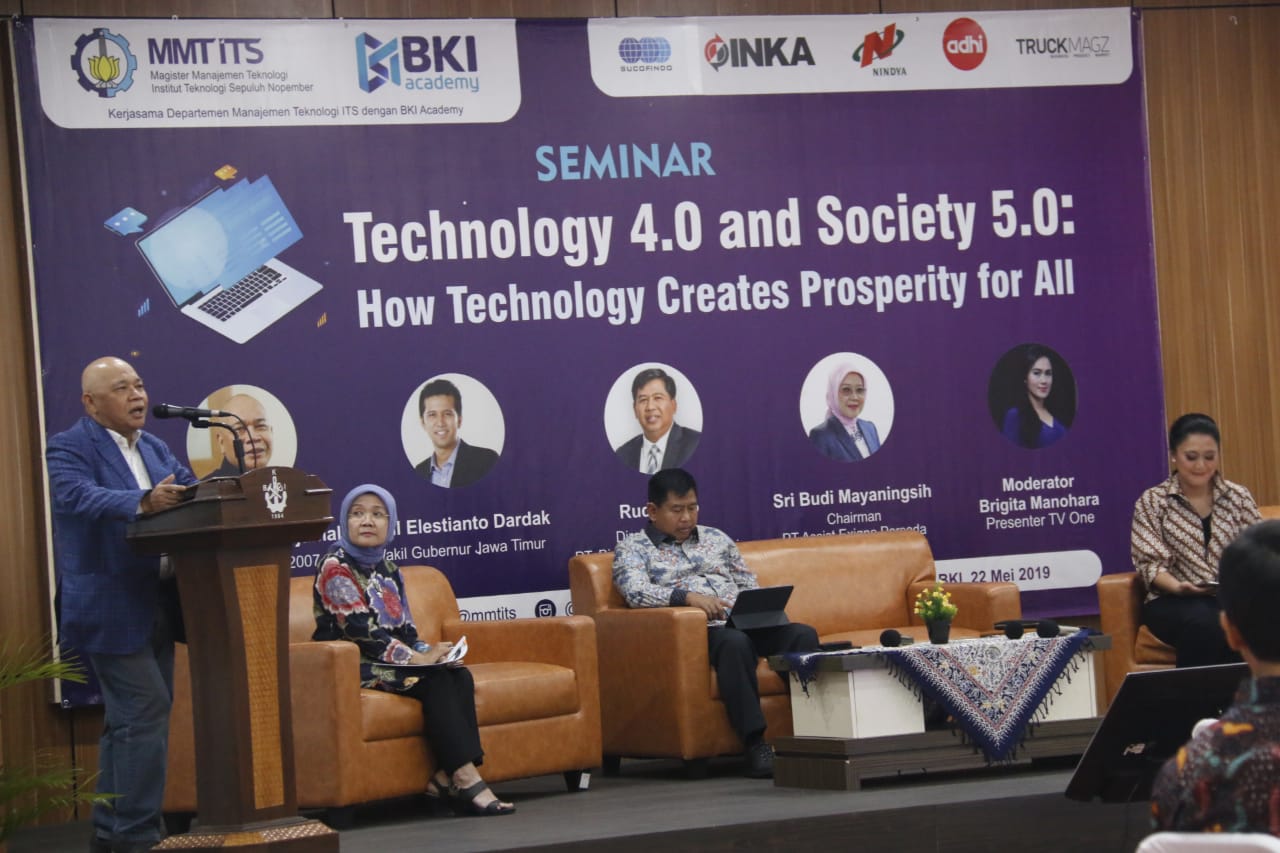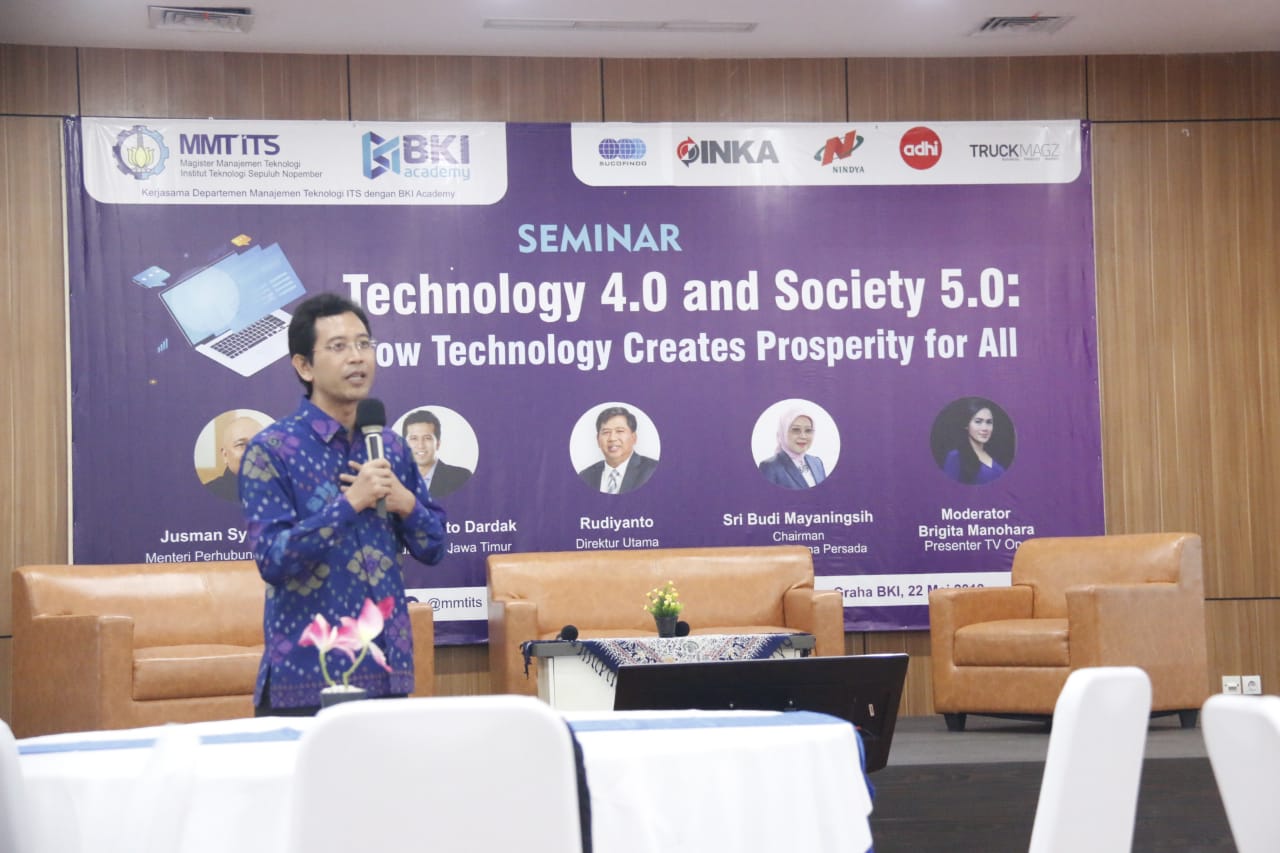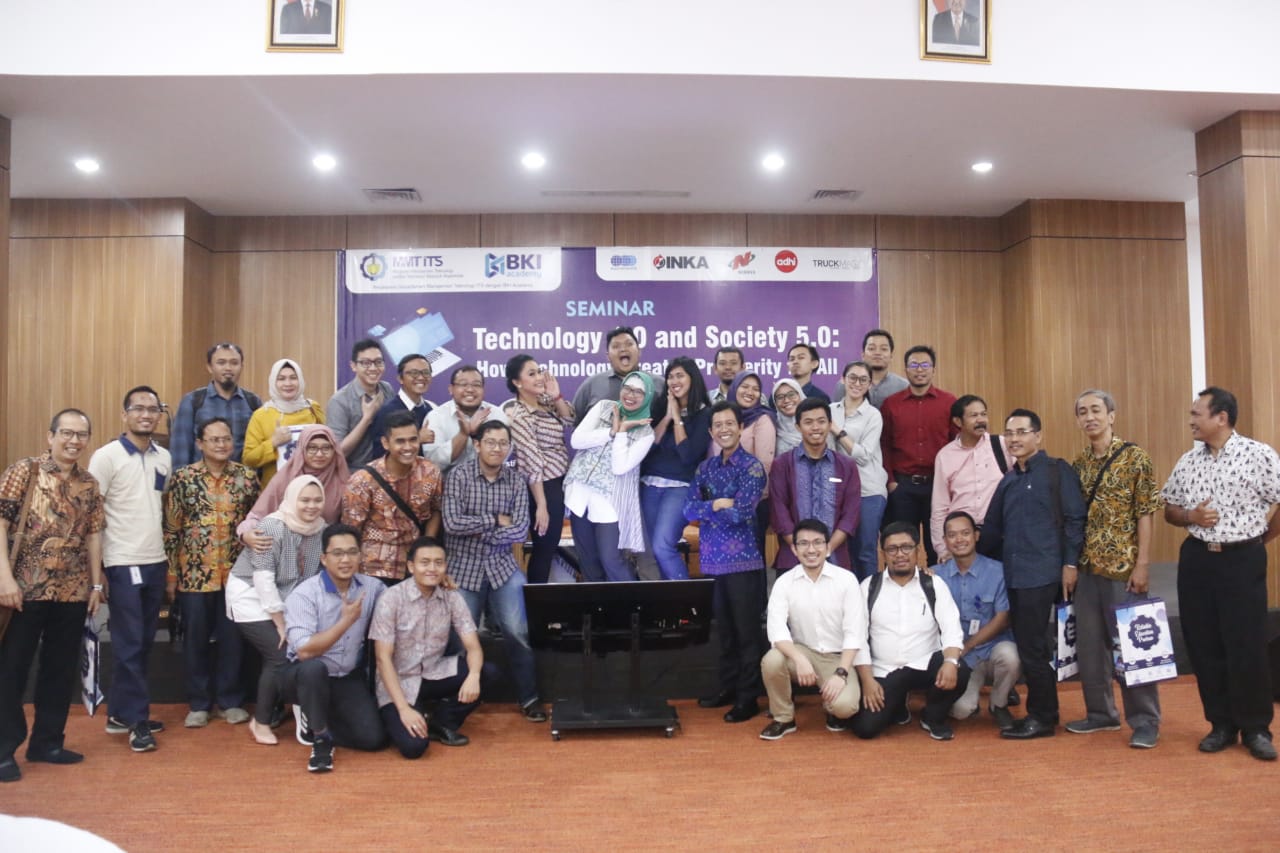How Industry 4.0 and Society 5.0 Help Create Prosperity

Jusman Syafii Djamal, Minister of Transportation 2007-2009 when giving material at a seminar organized by MMT ITS
Jakarta, ITS News – The industrial revolution 4.0 has triggered digitalization and automation in various sectors in industrial processes. This allows for major changes in the business model so that new businesses emerge and disrupt conventional established businesses that have long existed. Not yet finished with that, Japan emerged with the concept of society 5.0 which made humans at the center of technological development. Then, can the two eras of innovation create the prosperity of mankind?
This topic was raised in a seminar entitled Technology 4.0 and Society 5.0: How Technology Creates Prosperity for All, organized by the Technology Management Department (MMT), Faculty of Business and Technology Management (FBMT), Institut Teknologi Sepuluh Nopember (ITS), Surabaya. The event which was held in collaboration with the Indonesian Bureau of Classification (BKI) Academy took place at the Ali Sadikin Ballroom, Graha BKI, Jakarta on Wednesday (22/05).
Jusman Syafii Djamal, Indonesian Minister of Transportation 2007-2009 was appointed as the main speaker at the event. In addition, there is also the Director of BKI, Dr. Rudiyanto, and Chairman of PT. Assist Exiqna Persada, Sri Budi Mayaningsih. The seminar was moderated by presenter Brigita Manohara.
In the seminar, the speakers highlighted the growing development of the 4.0 industrial revolution which has transformed industrial processes in various sectors. Starting from the process of design, production, storage, transfer of goods, marketing, to transportation. According to them, digitalization has made it possible for a greater concentration of economic power than conventional business models.
Not only digitalization but automation also benefits businessman, also brings several significant impacts. The use of robots in warehousing operations and the use of drones for shipping goods has posed a threat to the availability of jobs. The Labor Institute noted, as many as 100,000 residents lost their jobs in 2018 due to digitalization and automation.

Head of the ITS Technology Management Department, Prof Ir I Nyoman Pujawan MEng PhD CSCP when giving a speech
On the other hand, Japan emerged with the concept of Society 5.0 which made humans at the center of technological development. The concept of Society 5.0 seeks to create a balance between technology as a trigger for economic development and as a means to improve people’s lives and social welfare.
The implementation of Society 5.0 includes massive data processing in cyberspace collected from human activities and other physical objects. The processed products will form the basis of decisions that create efficiency, security, comfort, health, and more balanced welfare distribution.
The speakers present also linked these developments to the current condition of Indonesia. So that there are some challenges that must be faced by businessman, state-owned companies, and also the Indonesian government. Among them are how institutions in Indonesia can reduce the negative impact of these technological developments, such as reducing emissions, reducing social and economic inequalities, increasing the participation of national industries, and preventing the collapse of social institutions in society.
The seminar was also a means of exchanging ideas about the development of industrial revolution 4.0 and society 5.0, as well as a means of introducing a new program from MMT ITS whose teaching and learning activities were held in Jakarta. The program is a professional Masters program in the areas of Project Management, Supply Chain Management, and Business Analytics. For more information about this program, it can be accessed at its.ac.id/mt.

Some seminar participants took pictures with the speakers
translated by herdiana
Related News
-
ITS Supports the Indonesian Economy through Blockchain Research Center Inauguration
ITS Campus, ITS News — Strengthening itself as a center for technology, research, and education, Institut Teknologi Sepuluh Nopember
June 25, 2019 09:06 -
ITS Academics Eases Social Media Management with ITSPik Innovation
ITS Campus, ITS News — To improve budget efficiency and strengthen branding, Institut Teknologi Sepuluh Nopember (ITS) academics initiated
June 25, 2019 09:06 -
ITS Inaugurates Two Hospitals in Mojokerto as Medical School Hospitals
Mojokerto, ITS News — Institut Teknologi Sepuluh Nopember (ITS) continues to show its commitment to supporting the clerkship education program,
June 25, 2019 09:06 -
ITS Ranks as the Best University in Marketing in Indonesia
ITS Campus, ITS News — Continuously striving to meet industry needs has successfully brought Institut Teknologi Sepuluh Nopember (ITS)
June 25, 2019 09:06
